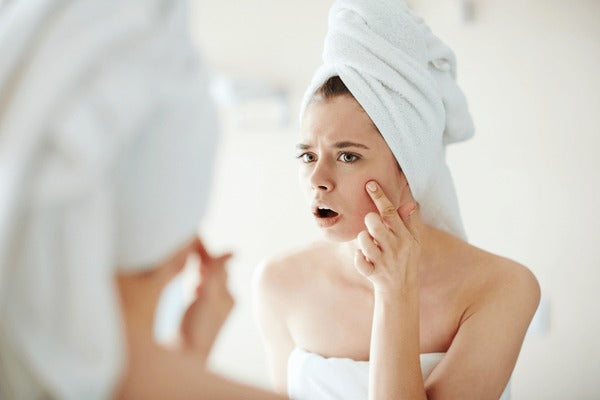Role of Hormones in Folliculitis Development: A Deep Dive
For beauticians and skincare specialists, comprehending the complexities of skin conditions is crucial. One such condition that often perplexes many is folliculitis. The role of hormones in folliculitis development is a significant factor, frequently overlooked. Let's delve into how these biological messengers impact this skin ailment.
Folliculitis is an inflammation of hair follicles that can mimic acne but has distinct underlying causes. Among these, hormonal fluctuations stand out as a pivotal factor, influencing the onset and severity of the condition. Understanding this connection can enhance treatment strategies and client satisfaction, making it a vital area of knowledge for beauticians.

What is Folliculitis?
Before exploring the hormonal influences, it is essential to understand what folliculitis is. It manifests as small, red bumps or white-headed pimples around hair follicles, often caused by bacterial or fungal infections. However, the deeper layers of causation often involve hormonal imbalances, which can exacerbate the condition, especially in individuals with sensitive skin.
Folliculitis can occur on any part of the body where hair grows, making it a widespread concern. For a detailed medical perspective, you can visit this comprehensive guide on folliculitis.
The Hormonal Connection
Hormones play a crucial role in numerous bodily functions, including skin health. The hormonal changes during puberty, pregnancy, menstrual cycles, and even stress can trigger or worsen folliculitis. These fluctuations can lead to increased oil production, clogging hair follicles and creating a perfect environment for bacteria and fungi to thrive.
Key Hormones Involved
The primary hormones involved in folliculitis include:
- Androgens: These are male hormones present in both men and women, which increase oil production in the skin. Excessive androgens can lead to oily skin, clogged pores, and consequently, folliculitis.
- Estrogens: Though primarily female hormones, they also play a role in skin health. Imbalances can affect skin texture and susceptibility to infections.
- Cortisol: Known as the stress hormone, elevated levels can exacerbate skin conditions, including folliculitis, by weakening the immune system.
Understanding these hormonal influences can guide beauticians in making informed decisions about skincare regimes and treatments. For more insights into how skin conditions are affected by external factors, consider exploring the impact of climate on skin conditions.
Managing Hormone-Induced Folliculitis
Effectively managing folliculitis involves a combination of skincare routine adjustments and, in some cases, medical treatments. For beauticians, recommending regular dermatologist check-ups is advisable to monitor and manage hormonal imbalances effectively. You can find more about the importance of dermatologist check-ups here.
Topical Treatments
Topical treatments can be beneficial in managing the symptoms of folliculitis. Products containing benzoyl peroxide or salicylic acid can help reduce bacteria and exfoliate the skin, minimizing the risk of clogged follicles.
Hormonal Treatments
In cases where hormonal imbalances are severe, medical interventions such as hormonal therapy may be considered. Consulting with a dermatologist can help determine the best course of action for managing hormone-induced folliculitis.
Preventive Measures
Preventing folliculitis, particularly for those prone to hormonal fluctuations, involves maintaining a balanced lifestyle. Stress management, a balanced diet, and proper skincare routines are essential. Additionally, avoiding shared personal items can prevent the spread of bacteria and fungi, reducing the risk of folliculitis outbreaks. Learn more about preventing infections by avoiding shared personal items.
Conclusion
The interplay between hormones and folliculitis is intricate but understanding it can significantly improve how beauticians approach this condition. By recognizing the signs of hormonal imbalances and recommending appropriate treatments, skincare professionals can offer their clients effective solutions and support. For those interested in the scientific aspects of folliculitis, further reading can be found on the Mayo Clinic's website.

FAQs
Can hormonal changes cause folliculitis to flare up?
Yes, hormonal changes, particularly those involving androgens, can increase oil production and exacerbate folliculitis.
What can beauticians do to help clients with hormone-induced folliculitis?
Beauticians can recommend appropriate skincare routines, stress management techniques, and suggest regular dermatologist visits for comprehensive care.
Are there specific products that help manage folliculitis?
Yes, products containing benzoyl peroxide and salicylic acid can be effective in managing the symptoms of folliculitis by reducing bacteria and exfoliating the skin.

